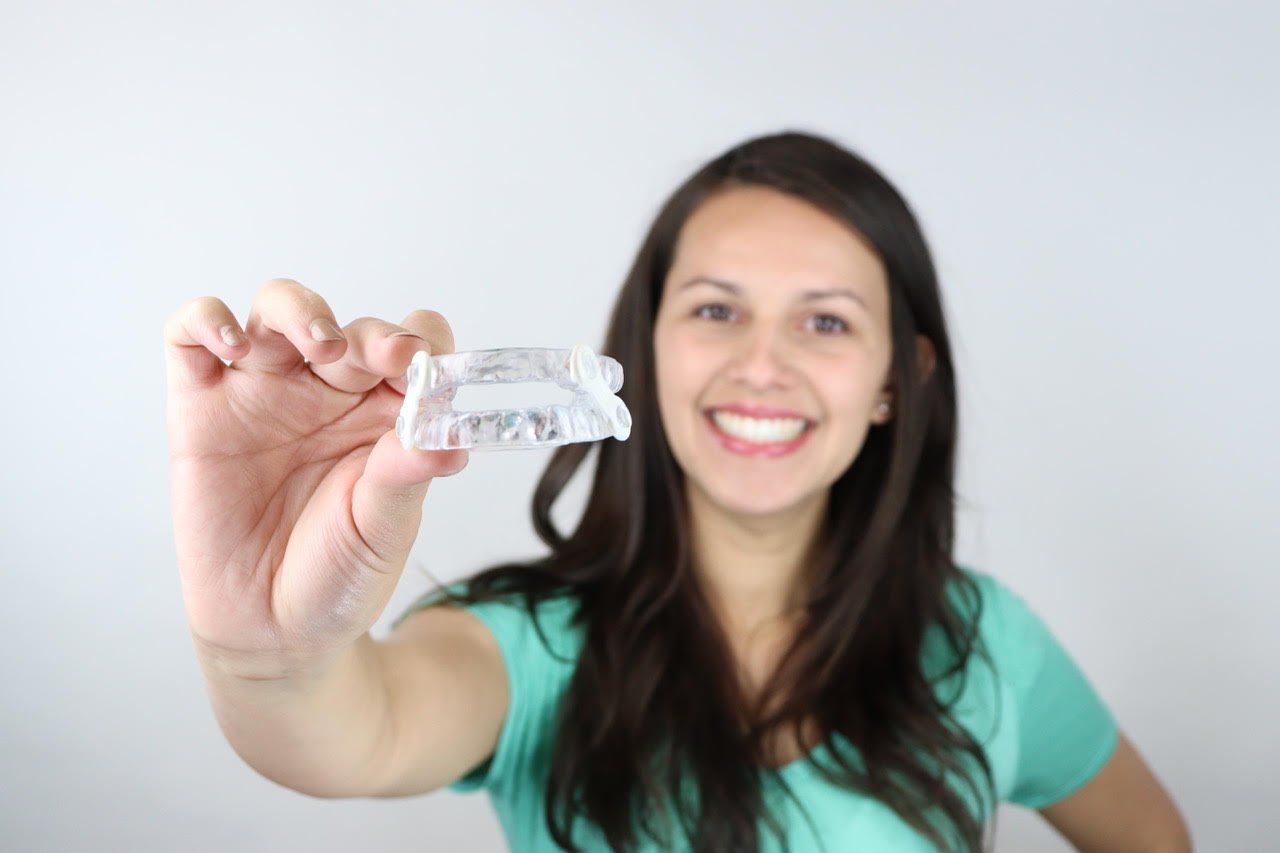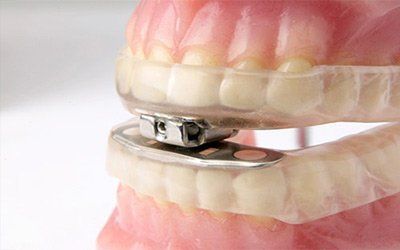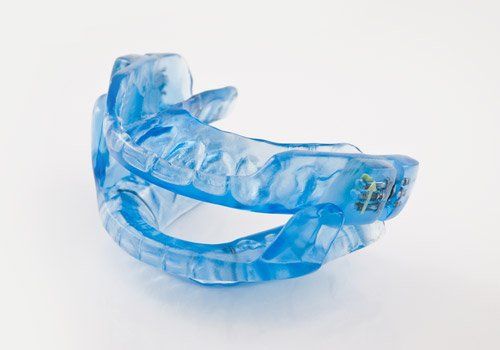What is an Oral Appliance?
Oral appliances are simple in how they function as sleep treatments. An oral appliance keeps the airway open by keeping the lower jaw and tongue from falling back and blocking the airway. This is similar to the “head tilt, chin lift” procedure taught in CPR classes. While there are many appliances on the market, they all basically do the same thing, keep the airway open by preventing the jaw from falling back.
Oral appliances are made out of a variety of materials, most being adjustable. The sleep treatment appliance being adjustable is important so that an effective jaw position can be found. In our offices, patients are routinely scheduled for follow-up sleep studies, during which the appliance can be adjusted by the sleep technician to ensure that the appliance is working as well as possible.
Types of Oral Appliances
ELASTIC MANDIBULAR ADVANCEMENT (EMA)
One of the most comfortable of the oral appliances for sleep treatments of sleep apnea and snoring. It is made with a very thin and comfortable material, along with elastic bands that allow for a good range of motion; with the ability to easily speak and drink while the appliance is in place.
The EMA can be adjusted by using different lengths of bands. The bands also come in different densities, which allows for a custom, comfortable fit.

MEDICAL DENTAL SLEEP APPLIANCE (MDSA)
A safe and effective treatment for snoring, and mild to moderate sleep apnea. The laboratory made MDSA holds the jaw and tongue forward and prevents the throat from collapsing during sleep.
The MDSA is scientifically proven as an effective method for treating snoring and mild to moderate sleep apnea. The MDSA is an alternative therapy when other treatments that involve nasal CPAP or surgery are not accepted.

SOMNOMED (DORSAL)
A relatively new appliance on the market. Its strong point is the fact that it is very smooth and comfortable. It is unique in that the upper and lower component of the appliance are not connected, as with other appliances. This allows for full opening of the mouth. The SomnoMed can also be adjusted.



